Seth Meyers looks at Donald Trump's final sprint to the primaries, isn't convinced he sees a winner
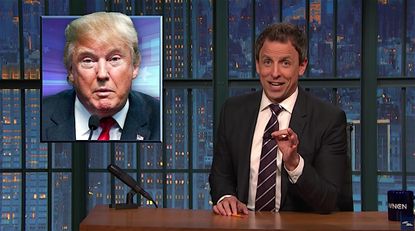

Donald Trump is starting to spend his promised $2 million a week on TV ads in early voting states, but he has already benefited from hours of free media coverage, said Seth Meyers on Monday's Late Night. That's partly because the media has "obsessively" covered every new poll this election cycle, there are lots more polls than in 2012, and Donald Trump has led in most of them, Meyers said. "But here's the thing about those polls: There's reason to think they might not really mean anything." One reason is that people hate talking to pollsters — the response rate has fallen from 90 percent to a dismal 8 percent, according to one study, which is "a lower response rate than student-loan collector and mother-in-law," Meyers quipped.
In the end, Trump could win all the primaries or none of them, but there are plenty of reasons to think his support is softer than the polls and media coverage indicates, Meyers said. You can watch his entire argument below. Peter Weber
Subscribe to The Week
Escape your echo chamber. Get the facts behind the news, plus analysis from multiple perspectives.

Sign up for The Week's Free Newsletters
From our morning news briefing to a weekly Good News Newsletter, get the best of The Week delivered directly to your inbox.
From our morning news briefing to a weekly Good News Newsletter, get the best of The Week delivered directly to your inbox.
Sign up for Today's Best Articles in your inbox
A free daily email with the biggest news stories of the day – and the best features from TheWeek.com
Peter has worked as a news and culture writer and editor at The Week since the site's launch in 2008. He covers politics, world affairs, religion and cultural currents. His journalism career began as a copy editor at a financial newswire and has included editorial positions at The New York Times Magazine, Facts on File, and Oregon State University.
-
 Kidney stones are affecting children far more than they once did
Kidney stones are affecting children far more than they once didUnder the radar Salt may be to blame
By Devika Rao, The Week US Published
-
 Crossword: January 9, 2025
Crossword: January 9, 2025The Week's daily crossword
By The Week Staff Published
-
 Sudoku medium: January 9, 2025
Sudoku medium: January 9, 2025The Week's daily medium sudoku puzzle
By The Week Staff Published
-
 Honda and Nissan in merger talks
Honda and Nissan in merger talksSpeed Read The companies are currently Japan's second and third-biggest automakers, respectively
By Peter Weber, The Week US Published
-
 Taylor Swift wraps up record-shattering Eras tour
Taylor Swift wraps up record-shattering Eras tourSpeed Read The pop star finally ended her long-running tour in Vancouver, Canada
By Peter Weber, The Week US Published
-
 Drake claims illegal boosting, defamation
Drake claims illegal boosting, defamationSpeed Read The rapper accused Universal Music of boosting Kendrick Lamar's diss track and said UMG allowed him to be falsely accused of pedophilia
By Rafi Schwartz, The Week US Published
-
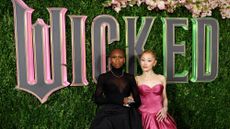 'Wicked' and 'Gladiator II' ignite holiday box office
'Wicked' and 'Gladiator II' ignite holiday box officeSpeed Read The combination of the two movies revitalized a struggling box office
By Peter Weber, The Week US Published
-
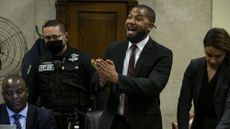 Jussie Smollet conviction overturned on appeal
Jussie Smollet conviction overturned on appealSpeed Read The Illinois Supreme Court overturned the actor's conviction on charges of staging a racist and homophobic attack against himself in 2019
By Peter Weber, The Week US Published
-
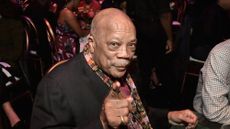 Quincy Jones, music icon, is dead at 91
Quincy Jones, music icon, is dead at 91Speed Read The legendary producer is perhaps best known as the architect behind Michael Jackson's 'Thriller'
By Peter Weber, The Week US Published
-
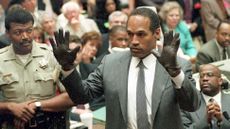 OJ Simpson, star athlete tried for murder, dead at 76
OJ Simpson, star athlete tried for murder, dead at 76Speed Read The former football hero and murder suspect lost his battle with cancer
By Rafi Schwartz, The Week US Published
-
 Momofuku's 'Chili Crunch' trademark uproar
Momofuku's 'Chili Crunch' trademark uproarSpeed Read The company's attempt to own the sole rights has prompted backlash
By Rafi Schwartz, The Week US Published